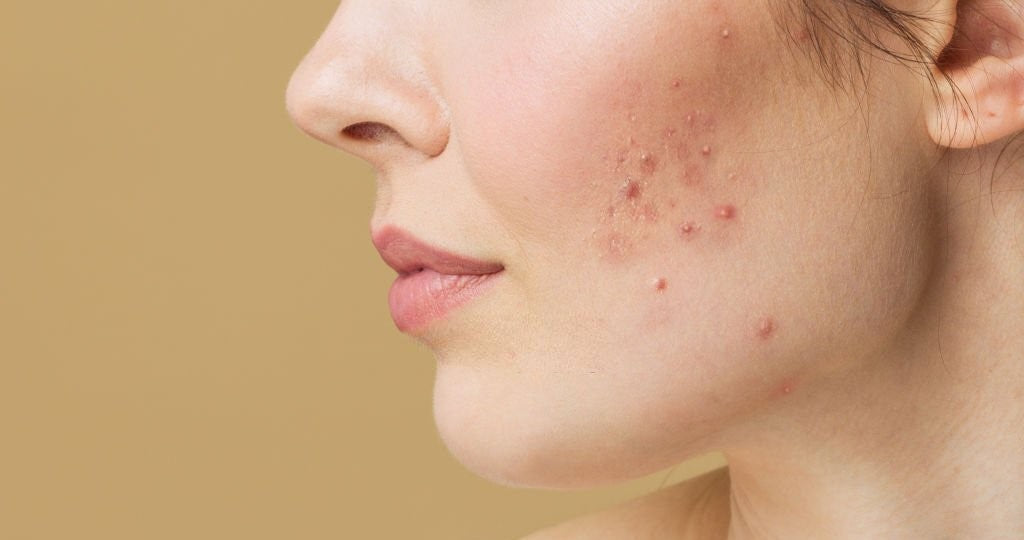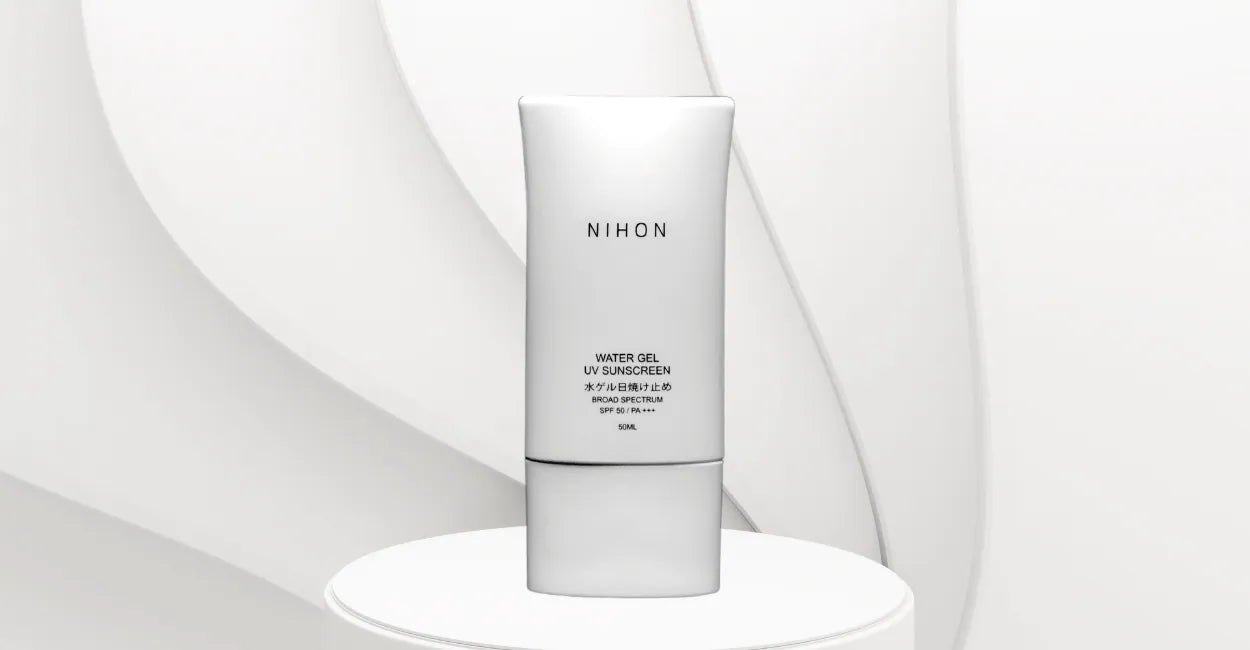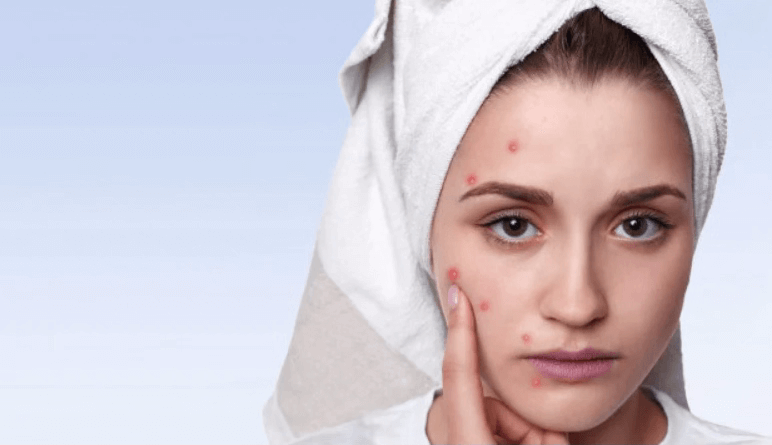What is acne?
Acne? By hearing the word acne can already give us goosebumps. Acne is a skin condition. It is very common, yet not that easy to manage. Anyone at any age can have acne. Teen acne, adult acne, you name it. Acne presents itself in different severities: from the mild, moderate up until the severe types. What's more... There are tons of treatment available.
So, should we be worried when we have acne? What to do? Is it treatable?
Do not panic first.
First of all, we need to learn the cause that leads to the formation of acne.
Before we get any further on this acne matter, let's take a look and understand the structure of our skin first.

Our skin is the largest organ of our body. But, it is more than just an outer layer of the body. It works amazingly as a guard shield to protect the body from the outside world, any harmful substances like pollution, dirt, UV rays, and unwanted microbiomes.
It has two main layers that comprise of the upper epidermis layer and lower dermis layer. Epidermis (also known as stratum corneum) is the first-line defense that consists of four types of cells which are Melanocytes, Keratinocytes, Merkel cells, and Langerhans cell. Meanwhile, the Dermis located underneath provides the structural support and load with collagen, elastin, and hyaluronic acid.
What are the causes that lead to it?
1. Overproduction of sebum
The pilosebaceous unit in the skin consists of the sebaceous gland and hair follicles. The sebaceous gland produce natural sebum. This sebum plays an important role to moisturize the skin, maintain the skin's bounciness, and protect the skin barrier. However, excess sebum production will block this entire unit, causing acne to appear!
There are many factors that can cause sebum to overproduce:
a. High androgen level
Androgen is a male hormone (testosterone especially) that we get during puberty. Yes, it can present in women's bodies too. Androgen in women body is used to convert into estrogen when reached puberty. I
In fact, women with a high level of androgen can easily get acne because of sebum overproduction. Any causes of hormonal imbalance can result in more sebum secretion, accumulation in hair follicles, and blockage of the pores.
b. High glycemic index foods
Acne is not just about what you put on your face, but it also can be caused by what you feed to your body. If you ever feel you have done everything right and the acne is still there, try to check on your diet.
High glycemic index foods are more likely to cause acne formation as it affects your blood sugar and insulin hormone, thus, causing an overproduction of oil. So, avoid high glycemic index food like like sugary food, processed food, and white bread.
c. Skin dehydration
Our skin is smart. When the skin is dehydrated or feels a little bit tight or dry, it will send a signal to the sebaceous gland to produce more oil. Skin dehydration is mainly caused by Transepidermal Water Loss, whereby the water that sits in the epidermis layer of the skin evaporated to the external environment.
This usually happens when your skin barrier is compromised by the product you use. So, this is why you will still need to use moisturizer, even when you have oily skin. (Just find a moisturizer that is suitable for your skin type!)
2. Propionibacterium acne (P.acne)
The bacteria that are related to acne is the Propionibacterium acne or P.acne. Everyone has it, but, not everyone gets acne from it. (Fun fact: Did you know that the sebum on our skin feeds this bacteria with nutrients?)
So, what happens when there is overproduction of sebum? Yes, the bacteria will multiply and grow! Even though P.acne and sebum are essential to our skin, they will become a problem they get are over produced and clogging up the pores. That is where you will get acne!
3. Environment factors
The environment can be dirtier than we thought. Pollution and impurities that wander freely in the air can stick onto your skin and accumulate in the pores. They can also increase oxidative stress, leading to a severe change in the normal functions of lipids. Apart from that, the UV lights emitted from the sun can cause the skin to produce more sebum. While, the UVB rays cause sunburn to the skin, which generates an excessive amount of dead skin cells. Well, we already know the dead cell's favorite place, the pores! So both of these factors contribute to acne growth.
4. Skincare products
Imagine spending hundreds and thousands of ringgit on skincare just to make your skin worse. This is why it is always important to do your research first before buying any skincare products. Or even to try out a small bottle. Some skincare may work for others, but not for you. Comedogenic skincare ingredients are the culprit when it comes to acne formation. Avoid ingredients like coconut oil or lauric acid as they have a high comedogenic rate and can mess up your pores, causing your skin to break out.
The bottom line
The acne problem may not be gone completely. However, it can be controlled by understanding your skin better and tackle the root cause of it. Do not ever feel that you are not good enough just because you have acne. Yes, it may not be something that is easy to deal with. But, when you get there (Trust me you will), you can take full control of your skin.
Be wise and do as much research as you can. And do not hesitate to seek professional help when the problem is getting out of hand. You are not facing this battle alone.

Before you jump into any topical treatments for acne, remember to have a basic skincare routine first! Topical acne treatments can be too strong for your skin. So, a basic skincare routine will act as a barrier between your skin and topical acne treatment. It helps to minimize skin dryness and irritation.
If you are not confident yet to use acne treatment, let's start a skincare routine that can protect and at the same time treat the acne.
Wait, is that possible? Yes, It is possible! Include the NIHON Acne Set in your skincare routine! It is also available in Travel Size which you can use as a trial pack.
NIHON Basic Acne Set is rich in ingredients that work to reduce the appearance of acne and acne scars like Retinol, Kojic Acid, Pearl Powder, Vitamin C, and Niacinamide. Not just that, it also helps to boost the look of your complexion by nourishing your skin with Vitamin E like Jojoba Oil, Grapeseed Oil, and Squalane. Well, you know it is not just typical skincare for acne skin. But, we assure you the best quality in our products to take care of your skin.



